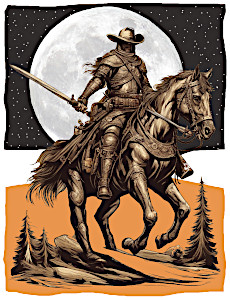The Absolute Need for Conspiracy
Chapter 1
Organizing Chaos
The learned advertiser begins:
“The conscious and intelligent manipulation of the organized habits and opinions of the masses is an important element in democratic society.”
This applied precisely to the democratic societies the ancient Arуans and the early modern American Indians, iron age and stone age societies, that due to their structure had their tradition as easily destroyed through corruption and/or replacement their priesthoods by manipulative interests.
“Vast numbers of human beings,” must cooperate if society is to be “smoothly functioning,” which is to say profitable for controlling interests who produce “a public mind” shaped after their own selfish interests.
“Our invisible governors, are in many cases, unaware of the identity of their fellow members in the inner cabinet.”
Bernays asserts, correctly that as long as there is mass cooperation as a goal, that any society that spans more than simple geographical space will be ruled “by a trifling faction.”
Ironically, warrior kings of Arуan antiquity were unable to command, but must convince and lead warriors directly, making conquest by force the purest form f democracy. As soon as a necessity to increase profit is inserted into any such society, it walls decadent at the core even as its economy booms. This monetized society is split by a chasm between ruled and widened by the manipulators, driving rich and poor further apart and achieving terminal control of managed moral and spiritual decline. The goal of a monetized society, from the perspective of the propagandist is to monetize despair.
Bernays, honestly forged on into open conspiracy, indeed the absolute need for such, “It is they who pull the wires which control the public mind, who harness old social forces [religions, JL] and contrive new ways to bind [enslave, JL] and guide the world.”
Bernays blandly admits that in theory the voter has a choice, but that he is manged in such a way as to make a predetermined choice in service to a force other than his good. Our field of choice must be “narrowed to practical” and therefore predictable “proportions.”
Cultivation of mass hysteria and reduction of internal social empathy and grace are, though omitted in this functional brief, necessary to the art of propaganda. Acceptance of declared parameters bearing on a “public question,” becomes a precondition for membership in a modern society and funnels the herd up the meat chute of souls.
“Society consents to have its choice narrowed to ideas and objects brought to its attention through propaganda of all kinds.”
Clearly, any such society will be granted choices that are nearly predetermined, reduced from hundreds or thousands to an ideal bipolar number of 2, sometimes 3 or 4. These are given later in Chapter 2, but fit nicely here in 1.
“The technical means have been invented and developed by which opinion may be regimented.”
Bernays uses regimented numerous times in the text.
H.G. Wells is then quoted as a propaganda of mass mind formation in a New York Times essay. In 1928, Bernays is so over the moon about mass mind formation, that he neglects to note that H.G. Wells, a Britisher, was instrumental in reforming the American mind. He cultivates the idea the persons with like minds and interests may now move world events together through the media, “though they live thousands of miles apart,” and as earlier indicated, may not even know, or know of, one another.
A partial list of organizations listed in the World Almanac under A, is many times more extensive than the bipolarity, tripolarity of quadrapolar power structure sought, demonstrating that such organizations are merely control vectors for anonymous parties. “22,128 periodical publications” are listed, making the point that in a society dedicated to profit, which is informed by experts as to doctrine, that even the act of organizing public common interest groups, atomizes the very cause, making of its human frame a mere agent for the demise of its own faithful.
In his most sinister passage of Chapter 1, Edward wrote, “this invisible, intertwining structure of groupings and associations is the mechanism by which democracy has organized its group mind and simplified its mass thinking.”
The subtext of this sentence is that democracy is unified across all nations, due to its emotional engineering, in service to the unnamed, the extra ethnic, the extra national, the extra religious powers that harvest humanity. He suggests an evolving code of ethics, after describing how only the economics of minority gain may be ultimately served by the “The Public Mind in The Making.”
In antiquity, one of the examples of this sacral deterioration of honor, oaths and the ideal of truth was the behavior of Tisaphernes, the Persia satrap and his fellow servants of the King who made binding oaths under Heaven, to a mutually recognized paternal God in truce an alliance, and broke these oaths for advantage, for profit. [1]
This disease spread to all of Greece and Rome over time. After the fall of a corrupt, Christian Rome, were oaths were not sacred in the 400s, and the rise of Christian feudalism in the 700s, and the slowing of economic growth, honor cults returned and did not totally break down until the rise of Plantation Economics in the 1600s. Ironically, the return of honor systems under slower economic conditions are called by historians, The Dark Ages.
The general historical trend in Arуan and other tribal and clan-based spheres, is that accelerated economic activity erodes reciprocal ethics and honor, and that cooling economic conditions ease a gradual return. The 500 death of honor the west began in 1216 with the Magna Carta and was finally achieved with mass population replacement of European-American laborers by others beginning in 1685 and largely achieved by 1776, with displaced laborers used to displace tribal peoples. These cycles continue into our time.
…
Notes
-1. Xenophon, Anabasis books 1 thru 3











